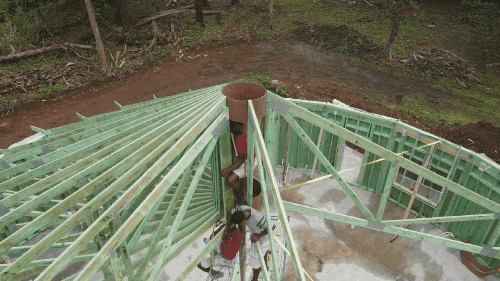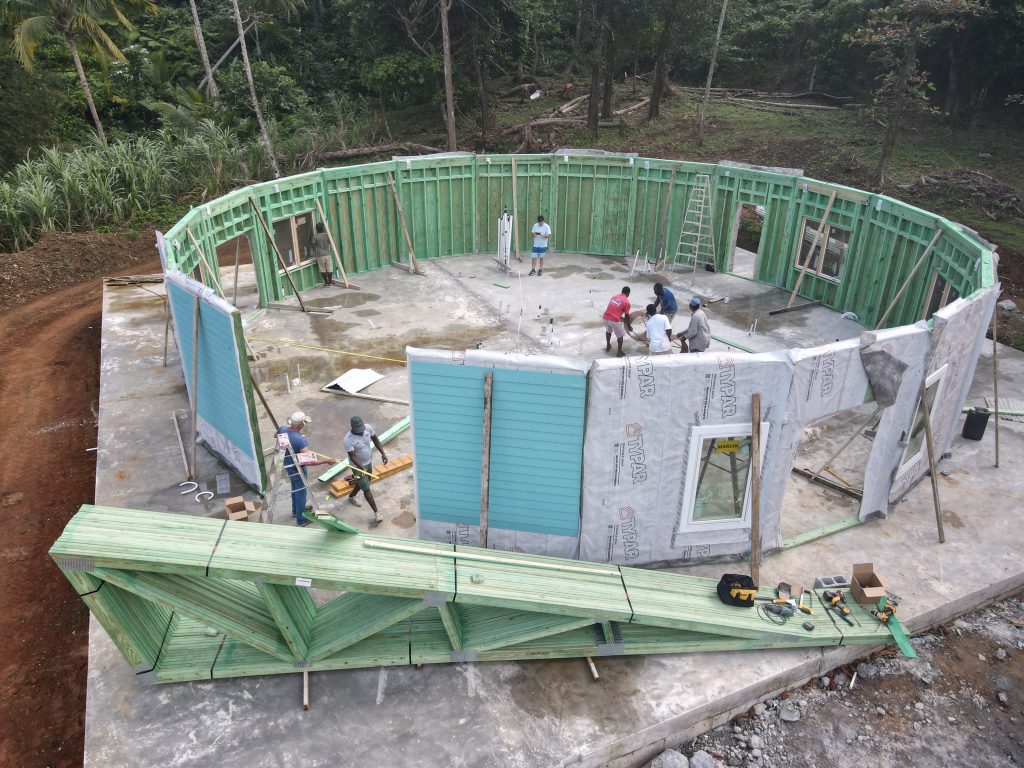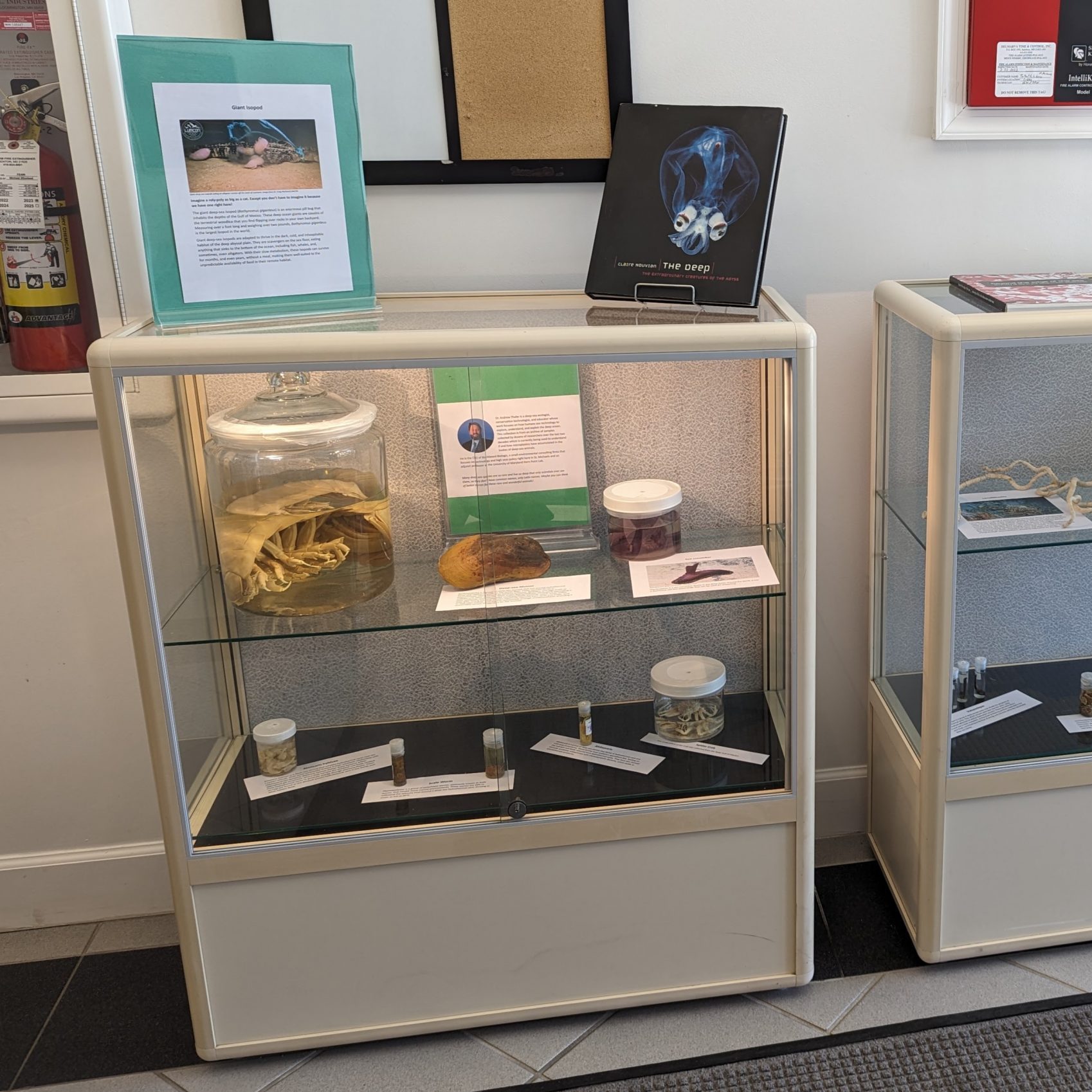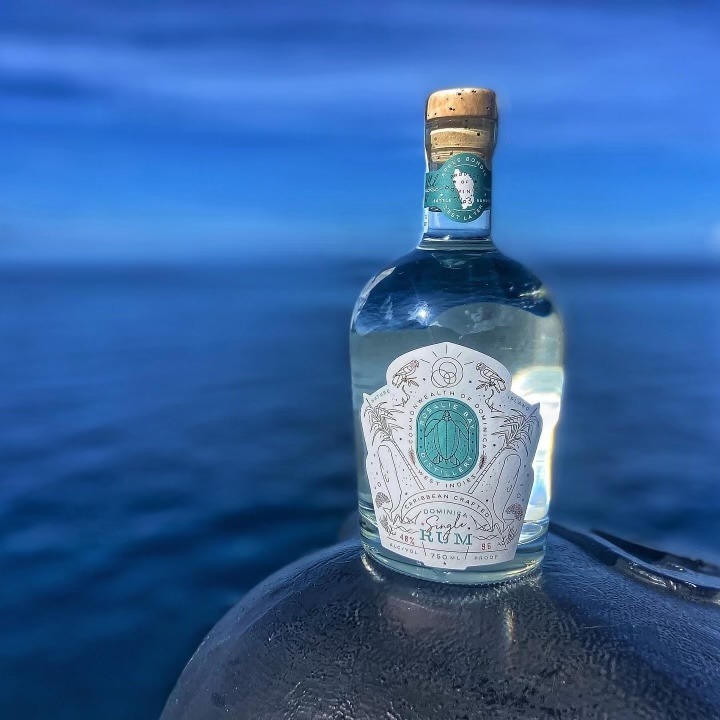In the hours before dawn on one mid-October morning, I climbed into the jumpseat of a C-131 cargo plane, and began a long, complicated journey to the island of Dominica. It was 2017 and Hurricane Maria had cut a swath of destruction across much of the Caribbean, but it was Dominica that first bore the full force of the storm as it roared into the Americas.
When I began working with Jake Levenson (Oceans Forward) early the year before, we were developing a marine conservation and robotics program to bring to students on the Island, but the storm changed everything. Though my first trip to Dominica was far different from what we had planned, it was the beginning of a long partnership with Levenson, the Dominica Sea Turtle Conservation Organization, and friends and colleagues from Dominica and around the world committed to marine conservation and answering the big question: can a small island create a model for financially sustainable marine conservation that is resilient to both the changing climate and the ever-shifting winds of ecotourism?
From that question, and over many conversations with stakeholders, experts, funders, and community leaders, the Rosalie Conservation Center–a center of learning and research as well as a fish hatchery and a rum distillery–was born.
Dominica Sea Turtle Conservation Organization, DomSeTCO, is a non-profit charity in Dominica dedicated to conserving the marine environment while providing economic opportunities for the communities in which it operates. DomSeTCO, Oceans Forward, and an international team of volunteers from science, conservation, and industry have spent the last few years laying the groundwork for the creation of a conservation center in Rosalie Bay to support coastal communities where sea turtles nest in Dominica.
The Rosalie Conservation Center merges a fish hatchery and a rum distillery to create a model for non-profit conservation financing. This hybrid venture will provide aquaculture training and operate a rum distillery as a financially sustainable alternative to inconsistent and unpredictable grant funding. The Center will provide employment opportunities in Dominica while working to protect natural resources and providing DomSeTCO with long-term support for its education and conservation initiatives.
Sustainable financing for ocean conservation is an ongoing struggle. Non-profit organizations are dependent on grants and donations to maintain programming, but this model is not a sustainable long-term solution to all but the most well-connected and visible conservation initiatives. The decline in consistent, significant funding puts these initiatives in jeopardy. While many non-profit organizations use an ecotourism model that relies on the species they steward, Dominica’s sea turtle population is in decline, and revenue generated from turtle tours are no longer as financially viable as they were twenty years ago.
Even though one of the most renowned rum producing islands is only 22 miles away, there is no local rum produced wholly in Dominica. This provides a unique opportunity for a branded non-profit craft rum distillery that can provide income and jobs to local communities, support ocean conservation, and provide a unique premium product for export. A complementary aquaculture operation advances Dominica’s climate resilience by providing additional food security. As disparate as they seem, these two ventures have complementary logistical needs.
As an added benefit, many of DomSetCO’s sea turtle patrollers operate sugar cane farms. A distillery provides a product that is not limited by fluctuating seasonal tourism trends, can be exported, and fills a local niche market.
DomSeTCO has partnered with Windon Distilling of Saint Michaels, Maryland, a craft distillery known for small-batch rum who will be providing technical training and distribution support; the University of Massachusetts Boston, School for the Environment to bring expertise on aquaculture methods; Blackbeard Biologic (that’s me!) to provide logistical and environmental support; the Dominica Lions Club, and many other organizations and individuals to help bring this project to fruition.
This year was not without it challenges, chief among them the passing of Errol Harris. Errol was a true naturalist, driven by an endless fascination with nature. He was a conservation biologist who realized that the path to protecting Dominica’s turtles was through its people. With his wife, Marcella, he gave tirelessly to the people and wildlife of Dominica. His fascination with the natural world inspired many who will carry on his legacy.
Despite the tremendous challenges of a global pandemic, we broke ground on the Rosalie Conservation Center. As the foundation and roadwork was poured, we finalized the design of a Deltec hurricane resistant building, loaded it into containers, and shipped it to Dominica. The first walls went up this week.
We are building a conservation distillery, and we’re building it today. From farm to flask, Rosalie River Rum, will be the only sustainably-sourced rum on Earth where the profits go directly to environmental conservation.
Here is where we need your help! Though the RCC project has obtained the bulk of its needed funding from several benefactors, the logistics of pulling a project of this size and complexity together in the midst of an historic pandemic means that the entire endeavor is running on a razor-thin budget. Small contributions can make a huge difference in the project’s ultimate success.
Oceans Forward, a US-registered 501(c)(3) non-profit, is handling donations for the Rosalie Conservation Center. Donate to our GoFundMe, here




Awesome! All the best in your endeavors. Imran Pacquete is on of the best to have on your team.